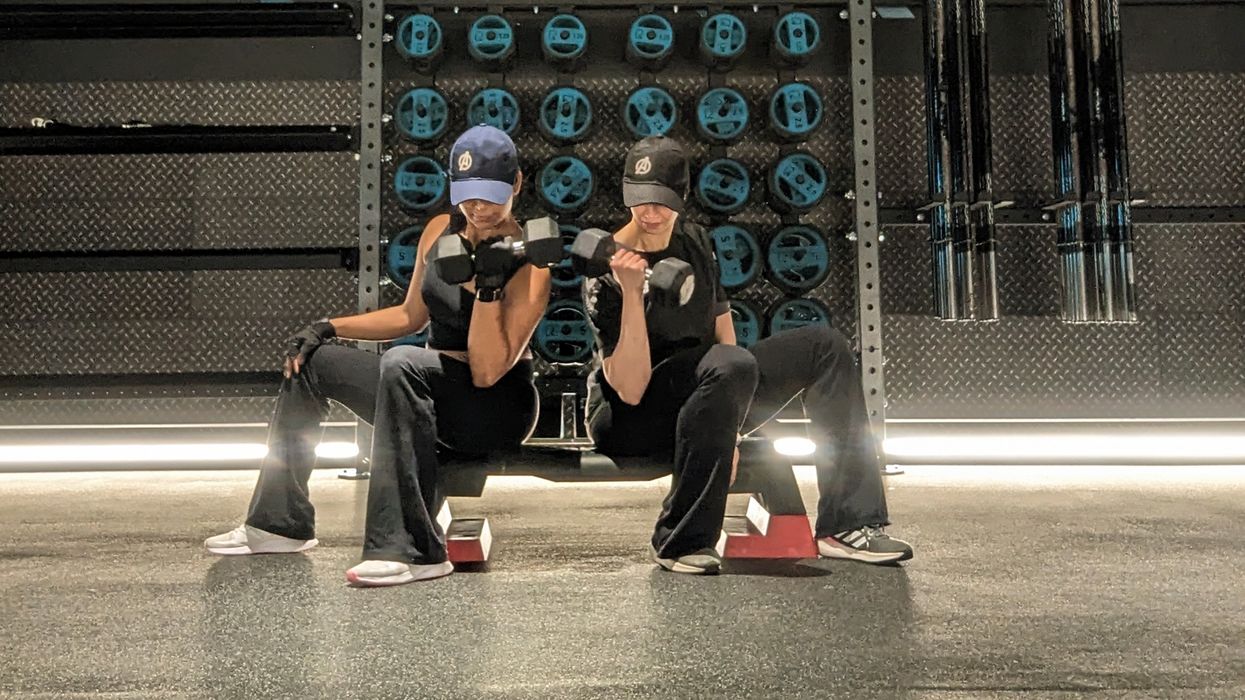MANY adults aim to achieve a fitter version of themselves by the end of each year, yet studies show that almost two-thirds abandon their resolutions within the first month.
Sticking to a fitness routine can be challenging, especially for beginners, as distractions, easy alternatives, and daily life often get in the way.
But a little push in the right direction might be all you need to get back on track. With this in mind, fitness enthusiasts Jayeeta Dutta and Nesreen G did some heavy lifting, conducted research, and spoke to experts to compile 20 simple tips that can help you become the best version of yourself by the end of 2025.
1. Plan: Set clear and realistic goals. Define exactly what you want to achieve with measurable targets. For example, aim to complete your first pull-up by April 2025.
2. Make it attainable: Goals should be challenging, but not overwhelming. Don’t try to move mountains on your first day. Start small, and as your confidence grows, gradually increase the intensity. Slow and steady wins the race.
3. Define and deconstruct: Keep your ‘why’ in mind. Whether it’s ‘I want to lose weight’ or ‘I want to feel more confident in my skin,’ break your goal down into smaller, manageable steps and begin the journey.
4. Discipline: Make ‘being disciplined’ your best buddy. Treat your workout schedule as non-negotiable. Some days will feel more difficult than others, but remember that sometimes the goal is simply to show up – doing something is better than doing nothing.
5. Track your progress: Keep a fitness journal to record things like step count, calorie intake, personal records, weight, or even the number of days you showed up. The more you see how far you’ve come, the more motivated you will be to keep going.
6. Buddy up: The gym is a great place to be inspired by positive, level-headed individuals. Being part of a supportive community will motivate you to push yourself further each time. An accountability fitness buddy can help you show up, even on the tough days.
7. Mix it up: Keep your workout routine fresh and enjoyable by adding variety. Combine cardio, strength training, and flexibility exercises for a well-rounded approach. You could also join a friendly challenge within your fitness community.
8. Discover: Fitness isn’t confined to the gym. Explore different activities like dancing, swimming, hiking, sports, or even walking. Finding a fitness programme that you genuinely enjoy will help keep you committed and motivated.
9. Be flexible: Whether it’s the type of exercise, your diet, or your schedule, be ready to make adjustments when something isn’t working. Take the time to find what truly works for you.
10.Classes: If you feel lost or don’t have someone to train with, gym classes are a great option. You can go at your own pace while learning new exercises and techniques. Plus, classes provide an excellent opportunity to meet like-minded people.
11.Musical motivation: Studies show that the right music can boost your motivation during workouts and even distract you from the discomfort. Create a playlist that will energise and pump you up.
12.Nutrition: You are what you eat. A healthy, balanced diet is just as important as exercise. Build healthy habits in the kitchen and practice mindful eating.
13.Relax: Respect your body. Rest and recovery are essential parts of any fitness journey. Schedule rest days to allow your body to heal and refuel.
14.Advice: If you feel overwhelmed or need guidance, consider working with a personal trainer or nutritionist for personalised support. You can also ask employees at the gym for help with technique. Additionally, there’s plenty of great online advice available.
15.Visualise: Picturing your progress can boost motivation and help you stay committed. Imagine how elated you’ll feel when you see yourself in the mirror the way you envisioned. Keep visualising.
16.Celebrate: Every fitness milestone, big or small, deserves recognition. Treat yourself to something you enjoy when you achieve a goal, such as a new outfit, a relaxing massage, or even a few selfies for social media.
17.Persistence over perfection: Building a habit takes dedication and perseverance. Remember, the only bad workout is the one that didn’t happen. If life causes a pause, reflect and restart. Don’t use it as an excuse to give up.
18.Support: Whether it’s your gym buddy, family, or friends, surround yourself with a supportive environment. Share your goals with those who can encourage and motivate you.
19.Enjoy the process: As the saying goes, the journey is often more rewarding than the destination. Celebrate small steps, embrace setbacks, and, most importantly, be kind to yourself. Recognise that this is a lifestyle change, not a quick fix.
20.Have confidence: Believe in yourself and be your biggest cheerleader. You’ve got this. Don’t be too hard on yourself – be proud of how far you’ve come. Remember, progress takes time and won’t happen overnight, but with consistent effort, it will come in small, meaningful steps. Here’s to a healthier and happier version of us all.


















 Charithra Chandran styled her hair in soft curls for the Ralph Lauren outfitInstagram/
Charithra Chandran styled her hair in soft curls for the Ralph Lauren outfitInstagram/ Charithra’s look was inspired by her character Edwina Sharma from BridgertonInstagram/
Charithra’s look was inspired by her character Edwina Sharma from BridgertonInstagram/

